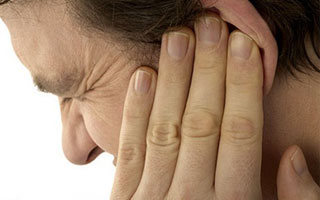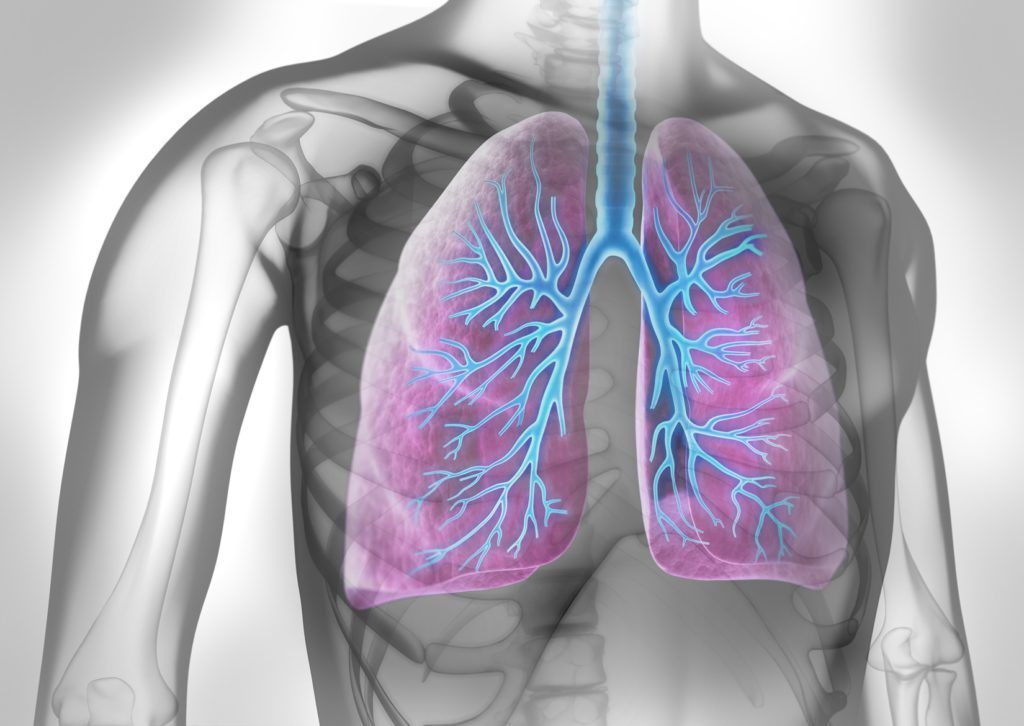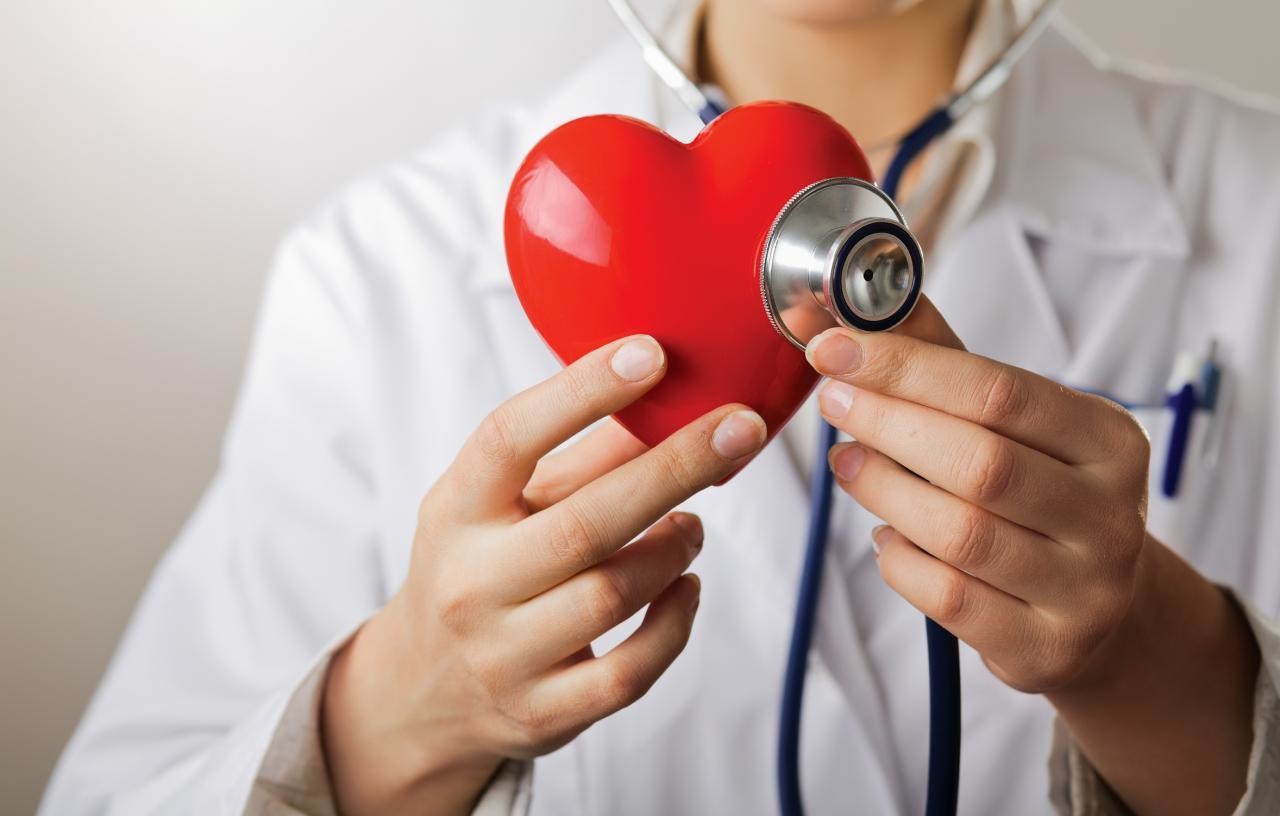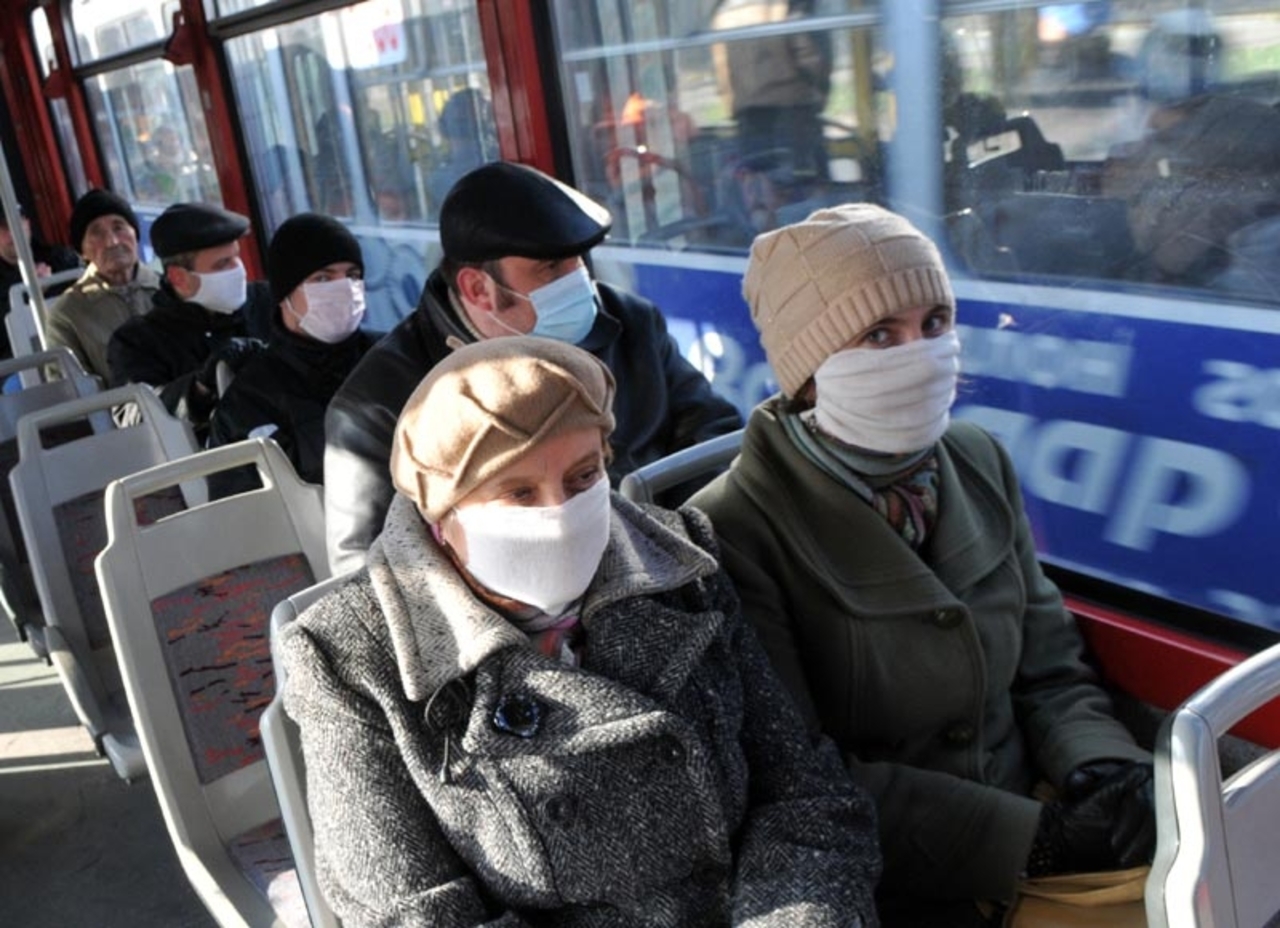Everyone is familiar with the situation: you just had ARVI, after which you closed your sick leave and cheerfully went to solve work cases. After a fever, feeling normal brings great joy, and you lose caution. A little carelessness with warm clothes or a recovery regimen - and everything goes down the drain. Not even one day had passed, but the disease returned, and even with very unpleasant "bonuses". Approximately 15% of all flu and ARVI illnesses turn into complications.
The consequences of ARVI are much more dangerous than the initial disease.
Why are complications after ARVI so dangerous?
Firstly, complications of ARVI are easy to "miss". Especially often those who tried to get sick "on their feet" and did not show up to the doctor lead to complications.
Secondly, "neglected" complications are, at best, a chance to "make money" chronic illness, and at worst - a threat to performance and even life.
We think that if after ARVI there is a fever, a cough continues, then these are just residual symptoms. Therefore, we patiently wait for these symptoms to pass. And while we play for time, the infection turns from viral to bacterial, which requires antibiotic treatment.
The fact that a bacterial infection has been added to ARVI is indicated by a re-increased temperature after ARVI, or a continuing fever. Depending on the affected organs as a result of complications, such diseases develop as rhinitis, pharyngitis, tracheitis, laryngitis, bronchitis, pneumonia, otitis media, etc. One of the most common complications is sinusitis. This is an inflammation of the maxillary sinus, in which the nose is "completely" stuffed up, there is a headache, and constant pressure is felt over the upper jaw.
Cough after ARVI, with which greenish sputum comes out, speaks of bronchitis. Barking cough, as if "fighting" the throat, speaks of the development of laryngitis or pharyngitis. If the cough begins to overwhelm with attacks that are difficult to stop, and extraneous sounds are heard when breathing, then the threat of pneumonia is possible. Temperature 37 after ARVI, sore throat, especially when swallowing, speak of sore throat. Ulcers appear on the throat, you can even see them yourself in the mirror. Angina itself can cause complications in the heart and kidneys.
As you can see, ARVI is dangerous because of complications. If the symptoms described above appear, immediately run to the doctor, or even better, call the doctor at home. The longer you wait, the worse the complications will be, and the chances of chronic illness or hospitalization increase.
On a note, especially to parents: vaccination after ARVI is usually allowed only after 2 weeks. If the doctor sends you to be vaccinated earlier, you should consult with another specialist, or contact the head physician.
Flow
The duration of a cold depends on the person's age, the state of his immune system, as well as on the type and strain of the virus that causes the disease.
Usually ARVI without complications lasts no more than a week. At the same time, the acute period of the disease, during which a person suffers from fever and other manifestations of intoxication, lasts 2-3 days. At the same time, there are colds in which the acute period is mild, as well as those in which the disease disturbs for 10-14 days. Rhinovirus infection belongs to "fast" ones, and parainfluenza, adenovirus infection belongs to "long-term" ones, however, their duration has individual differences.
What is a complication?
Complications are called pathologies that have arisen against the background of the underlying disease. The complication is associated with the underlying disease, and does not simply appear in parallel with it. The following factors contribute to the occurrence of complications:
The common cold is one of the diseases against which many serious diseases develop. The complications that arise can be much more dangerous than the cold itself. Some consequences of ARVI require surgical intervention (for example, sinusitis), and some - long-term treatment (for example, arthritis).
There are early complications of infections that occur during the acute period of the disease, and late complications that arise some time after the symptoms of the underlying disease have subsided.
Possible complications
What diseases can develop in a person suffering viral infection? Complications can be divided into two groups:
- respiratory diseases;
- diseases of organs outside the respiratory system.
Most often, complications of ARVI in children and adults affect the ENT organs.
By their nature, complications can be divided into the following groups:
- viral - a virus infection of previously unaffected organs (meningitis, viral pneumonia);
- bacterial - accession of a secondary infection (tonsillitis, bacterial rhinitis, pharyngitis, etc.);
- toxic - damage to organs or tissues by waste products of a microorganism;
- autoimmune - if damage to an organ or tissue is caused by a person's own immune system, the activity of which is distorted by the influence of the causative agent of the disease (for example, after streptococcal sore throat, the immune system can affect heart tissue, since the proteins of the heart valves and the cell wall of streptococcus have a similar structure).
Some bacterial complications that develop after ARVI, mainly in adults, become chronic diseases. So, bronchitis, arthritis, neuroinfections and other diseases can become chronic.
Complications of the respiratory system
 Most often, against the background of a cold, bacterial complications of the respiratory system develop. After acute respiratory viral infections, children often experience tonsillitis, bronchitis, etc.
Most often, against the background of a cold, bacterial complications of the respiratory system develop. After acute respiratory viral infections, children often experience tonsillitis, bronchitis, etc.
The most common secondary pathologies of the respiratory organs are:
- Angina, or acute bacterial tonsillitis - inflammation of the tonsils. Angina can get sick both in winter and in summer (as a result of drinking very cold drinks, etc.). Angina is dangerous in that it can, in turn, cause complications to other organs. A serious complication of streptococcal angina is rheumatism. This is a lesion of the connective tissue of the joints and heart. At the same time, angina itself is a serious illness, accompanied by intoxication, fever and severe sore throat. In infants, angina can even cause choking.
- Sinusitis and other sinusitis - inflammation of the paranasal sinuses. If after ARVI you have lost your sense of smell, headache and eye area hurts, especially when bending and sharp turns, you should visit an ENT. With acute sinusitis, the body temperature rises strongly, but with chronic sinusitis it can remain normal. Sinusitis threatens with a permanent loss of smell, as well as the spread of infection to nearby organs - the middle ear, eyes and even the brain. It should be noted that with sinusitis, a runny nose is not always observed, since often mucus cannot leave the sinuses (with swelling of the mucous membrane, blockage of the exit from the sinus by a curved septum, etc.).
- Inflammation of the lower respiratory tract - bronchitis and pneumonia. After ARVI, cough sometimes does not go away for quite a long time - 10-14 days. If you cough up phlegm as you do this, you are probably on the road to recovery. If, after ARVI, you are worried about a dry cough, or a cough with impurities of pus or blood in the sputum, you should worry. Re-increase temperature at this time confirms the suspicion of a secondary infection.
- Chronic rhinitis, rhinopharyngitis - inflammation of the mucous membrane of the nasal cavity and pharynx. They manifest themselves as a frequent runny nose, or as a runny nose and cough in the morning and at night (in the supine position, the sputum formed on the mucous membrane cannot drain into the esophagus, accumulates and clogs airways).
Complications to other organs

Temperature tail
It is also worth mentioning the phenomenon in which after ARVI the temperature is 37-37.5 C. There are no other symptoms of the disease. This condition is called “temperature tail” after ARVI. Temperature tail is not a complication. It usually fades away within a couple of weeks after recovery. but elevated temperature after ARVI may indicate a sluggish continuation of infectious processes. To make sure that the disease is over, it is recommended to pass general clinical analyzes blood and urine.
If there is a focus of infection in the body, this will certainly affect many test indicators..
If everything is normal, there is nothing to worry about. 
By the way, some experts believe that subfebrile temperature after a cold it keeps in those people who have weakened immunity. This also applies to those who, after ARVI, the temperature is lowered - 35.5-36 C. It will not be superfluous to have a fortified diet after suffering an illness, as well as strengthening the body by hardening, physical exercises.
conclusions
In order for the disease to pass without consequences, always follow the prescribed treatment plan, pay attention to the daily regimen and diet, do not abuse self-medication without consulting a doctor. If you suspect that a secondary disease is developing against the background of a cold, visit your doctor again. Remember that the complications of SARS are usually more dangerous than the cold itself, and many of them can become chronic.
SARS and flu differ from the common cold not only in the more severe course of the disease, but also in the serious consequences that often occur with improper treatment or weakened immunity. In the article we will talk about how not to get complications after ARVI, and what complications after ARVI are in adults and children.
There can be serious complications after ARVI
The flu attacks the body rapidly and is characterized by a sharp rise in body temperature. It spreads through the upper respiratory tract, affecting other organs and systems of the body. From infection to the active phase of the disease, it usually takes from several hours to three days. Distinguishing the flu from the common cold is easy enoughbecause the illness is accompanied by chills, muscle pain and aches, as well as headache and nausea. After a while, a dry cough, runny nose and sore throat appear. Usually the disease lasts 5-7 days, but weakness may persist for another couple of weeks.
The first blow is taken by the respiratory tract, their main task is to stop viruses and bacteria that break through into the body. However, the function of the epithelium is often disrupted and viruses enter the body. As a result, the person becomes ill and begins to fight the infection.
If the disease drags on and the patient does not have enough strength to defeat it, then complications develop.

SARS can negatively affect lung health
Depending on the type of infection, complications of influenza and ARVI can spread to the lungs, turning into bronchitis or pneumonia, as well as to the sinuses, causing sinusitis or sinusitis. In addition, the flu affects the brain, heart and kidneys, so take care of your health and do not tolerate flu and SARS on your feet. Early side effects of influenza include pulmonary and cerebral edema, meningitis and encephalitis, and “late” - pneumonia, bronchitis, sinusitis, otitis media, myocarditis and exacerbations of chronic diseases.
When to see a doctor
Now let's look at the main symptoms of complications after ARVI:
- Pneumonia or pneumonia Is the most common illness associated with influenza. It so happens that the patient thinks that all the worst is over, but suddenly the body temperature rises to 39 degrees, the person shivers, he coughs badly and complains that his chest hurts. If you or your loved ones have similar symptoms, then immediately seek the advice of a doctor. Acute pneumonia is usually treated in a hospital setting, so do not make decisions that you will later regret. The doctor will most likely prescribe antibiotic injections, as well as physiotherapy and special means for expanding the bronchi, which contribute to the discharge of phlegm.
- Bronchitis... Severe deep cough, chest pain, shortness of breath, sweating and shortness of breath indicate bronchial inflammation, which can be either viral or bacterial. Only a doctor can correctly diagnose and prescribe adequate treatment.
- Sinusitis - bacterial complication after ARVI. Influenza causes inflammation in the nasal passages and maxillary sinuses, the patient notices that greenish discharge from the nose appears, the head begins to ache and there is a feeling of aching pain in the teeth, squeezing in the face, it hurts when pressing on the forehead and cheeks, and sometimes body temperature rises ... If left untreated, pus can fill the sinus completely and burst into adjacent areas, which in turn can lead to a brain abscess. In case of sinusitis, it is imperative to consult a doctor for the correct diagnosis, which is carried out with the help of an X-ray or puncture, and adequate treatment.
- Viral diseases love the nervous system, so complications of ARVI can manifest themselves and in the form of polyneuritis, radiculitis and neuralgia... The main danger is inflammation of the membranes of the spinal cord and brain - meningitis and arachnoiditisthat develop at the most unexpected moment when you think that you are already recovering and are going to close the sick leave. The appearance of a headache in the forehead and bridge of the nose, nausea and dizziness is usually mistaken for the effects of the flu, but these can be symptoms of arachnoiditis. If you do not provide help to the patient in time, this can lead to sepsis.
- The first symptoms of meningitis also manifest themselves in pain - it seems that the head is bursting and tearing apart, nausea and vomiting appear, as well as a fear of daylight. If you experience similar symptoms, you should consult your doctor as soon as possible. Meningitis and arachnoiditis are treated only in a hospital setting, and untimely seeking help can lead to serious consequences.
- Guillain-Barré Syndrome... Complications after ARVI and influenza can manifest themselves in the form of impaired renal function. At first, the symptoms of the disease resemble a common cold, but then the limbs begin to grow numb, after a couple of days weakness in the legs and arms appears, and soon the person can no longer move independently. In case of pain and weakness in the muscles, do not postpone the visit to the doctor, in such a situation it is better to play it safe.
- Pyelonephritis. Inflammation in the kidneys is characterized by high fever and lower back pain, but in adults these symptoms are often absent. It should be alerted if, during an illness, urination became rare, and then, on the contrary, trips to the toilet became more frequent or flakes and pus appeared in the urine. For an accurate diagnosis of the disease, it is necessary to pass a urine test and consult a doctor.
- Complication of the heart after ARVI manifests itself in the form of myocarditis and pericarditis. With myocarditis, the patient feels pain in the heart, suffers from shortness of breath and rapid heartbeat. With pericarditis, chest pain increases with coughing, with changes in body position, and is also accompanied by shortness of breath and fever.
- Bacterial complications of ARVI also appear in the form acute otitis mediaaffecting the middle ear and eardrum. The infection spreads from the nose to the ear through auditory tube, the patient feels severe pain in the ear and suffers from high temperature... It happens that pus flows out of the ear, after which the pain temporarily weakens. Untreated otitis media can lead to hearing loss and further spread of infection.
- After ARVI, complications develop in the eyes.Viral conjunctivitis is most common in children and is characterized by redness and purulent discharge from the eyes.

Myocarditis and pericarditis are quite possible after ARVI
How to get rid of the flu without complications
- The main rule correct treatment acute viral diseases - this is bed rest. You cannot carry the disease on your feet, because this significantly increases the risk of comorbidities.
- It is important to maintain an optimal microclimate in the room where the patient is. Ventilate the room more often, do wet cleaning,the air in the room should be humid and cool. Do not underestimate the recommendations of doctors, because in a hot and dry apartment, the patient's mucous membranes dry out, as a result, they cannot fully fight the infection. In addition, dried mucus in the bronchi contributes to the occurrence of pneumonia, so it is better to cover the patient warmer, but maintain the temperature no higher than 18-20 degrees.
- Drinking plenty of fluids also plays an important role during the acute phase of the disease. Fever dehydrates the body, so fluid loss must be replenished in a timely manner. Please note that the more the patient drinks, the more often he goes to the toilet, and with urine toxins are excreted from the body and the body is cleared of decay products that are formed in the process of fighting infection. It is recommended to drink warm tea, herbal infusions, compotes and still mineral water.
- Good nutrition promotes rapid recovery from illness, which takes away almost all of the body's strength. In the active phase of the disease, exclude protein foods from the diet, as well as fried and salty foods. If the patient does not want to eat, do not insist, the main thing is to drink a lot. After ARVI, the menu should include dishes rich in vitamins and minerals in order to replenish the reserves of nutrients consumed during the fight against infection.

Drinking plenty of fluids with exacerbation of the disease is necessary
Treatment of a viral infection
For drug treatment are used antiviral agents and drugs that relieve flu symptoms:
- Antiviral therapy effective only if you start taking pills on the first day after the onset of the main symptoms of the disease. If you delay treatment, then antiviral drugs can no longer defeat the infection.
- Symptomatic therapy includes antipyretic drugs (paracetamol and ibuprofen in different dosage forms). Please note that doctors do not recommend lowering the temperature below 38.5 degrees, because at this temperature, interferon is actively produced, which is necessary to fight viruses. However, if it is subjectively difficult for the patient to endure the fever, then the temperature should be brought down even at 38 degrees and below.
- Vasoconstrictor drops in the nose is prescribed for nasal congestion.
- Saline solutions in the nose recommended for cleaning the nose and moisturizing the mucous membranes.
- Antihistamine tablets help reduce swelling of the mucous membranes.
- Sore throat medications relieve inflammation and kill pathogenic flora, which prevents the development of complications of ARVI.
- Expectorant and thinning phlegm cough suppressants help to eliminate phlegm and prevent the development of bronchitis and pneumonia.
- To maintain immunity, it is often prescribed immunomodulatorssuch as echinacea or ginseng.
- During the recovery period it is recommended to drink vitamin complexes, to strengthen the body and avoid complications of ARVI in adults and children.
- Antibioticsfor any viral infections they are not used, because they increase the likelihood of symptoms of complications after ARVI in adults and children. Antibiotics can only be prescribed by a doctor if, after 3-5 days, the patient's condition does not improve and there is a risk of bacterial infection on the virus.

The infection can be treated with a variety of drugs.
How not to get sick during an epidemic
- In the autumn-winter period, it is advisable to reduce visits to crowded places. You shouldn't go shopping with your children, it's better to spend time outdoors and get some air.
- Wash your hands often, touch your face as little as possible, and sneeze and cough into a clean handkerchief rather than your hand. Avoid shaking hands and try to pay not with paper money, but with a card (money is considered one of the main carriers of infection).
- After returning home from public places, rinse the nasal mucosa for yourself and your child with saline solutions.
- Ventilate the apartment more often, do wet cleaning, humidify the air and wipe the door handles with disinfectant solutions.
- Take vitamins and immunomodulators.
- If there is a family member with a viral infection, isolate him or her in a separate room, if possible, and provide personal dishes and towels. In case of contact with a patient, it is advisable to put on a gauze bandage.

Avoid contact with sick people
How to strengthen immunity and not be afraid of viruses
Scientists have long proven that stress weakens the immune system and impairs the functioning of the cardiovascular system. The person becomes vulnerable to viral and bacterial infections.
Some believe that the serious consequences of viral diseases occur only in children and take a cold lightly, but this opinion is wrong.
In adults, the symptoms of complications and treatment of ARVI often pass just as hard, therefore, the stronger the immunity, the more likely it is to avoid infection or to easily transfer a cold.
- People who know how to relax and do not take everything to heart, get sick much less often.
- A correct, healthy diet strengthens the body and increases resistance to colds and viruses.
- Adequate sleep allows you to accumulate energy for the effective activity of all systems and organs, if there is not enough time for sleep, then the immune system suffers.
- Physical activity and walking outdoors also strengthen the nervous system and have a positive effect on human immunity.

Proper nutrition reduces the likelihood of disease
Strengthening the immune system will reduce the likelihood of illness and complications.
ARVI and flu are viral diseases... They can begin not only during the cold season, but also in summer.
You can get sick both during an epidemic and after hypothermia.
According to medical statistics, approximately 15 percent of all cases of acute respiratory viral infections and influenza end with complications from various systems and organs.
Why does the complication develop?
The most common cause of complications of influenza, acute respiratory viral infections is the lack of full treatment or their transfer "on their feet". If not ignored vasoconstrictor drops and preparations for irrigation of the throat, you can minimize the effects of the disease.
Sometimes it happens that a patient with a cold exactly follows all the doctor's prescriptions, adheres to bed rest, but these measures do not help him. This is typical for patients:
- with a burdened history;
- elderly people;
- children under 1 year old.
Influenza, not SARS, is especially dangerous with complications. In recent years, the number of deaths from it has increased. This is due to the constant mutation of the influenza virus. Therefore, it is recommended to carry out immunization against this disease every year.
Naturally, vaccination cannot guarantee that a person will not get sick. But even if this happens, the flu is much better, and dangerous complications after it does not happen.
Bacterial or viral complication
Usually the symptoms of ARVI and flu subside within 7-10 days after their onset. If this does not happen, then it is obvious that a bacterium has joined the virus. The weakened body is not able to fight the microbe to the full and complications develop:
- angina;
- sinusitis;
- pneumonia;
- bronchitis;
- otitis.
Such diseases require a mandatory visit to the clinic and taking antibiotics.
The patient will not feel the symptoms of sinusitis right away: they increase gradually. This group of diseases is characterized by purulent yellow-green discharge from the nasal cavity, high general body temperature, pain in the projection of the sinuses, and headache.
Otitis media worries the patient if pathogenic microorganisms have reached the middle ear. Signs of the inflammatory process in this case will be tinnitus, "lumbago", ear pain, discomfort when pressing a finger on the ear tragus. Against the background of recovery after ARVI and influenza, sharp rise temperature, deterioration of health.
Bronchitis is inflammation in the bronchi. The disease is accompanied by:
- rise in body temperature;
- wet cough;
- wheezing in the sternum.
The cough may be accompanied by the secretion of thick mucus. Difficulty breathing is also likely, the development of shortness of breath.
The most unpleasant and serious complication after SARS and influenza can be pneumonia. The symptoms of the disease are varied - from pain in the side to heart failure. Pneumonia is accompanied by shortness of breath, wet cough, general weakness, and fever.
Inflammation of the lungs can be unilateral or bilateral.
Otitis media and pneumonia are diseases of viral etiology. Despite this fact, patients need to undergo antibiotic treatment. This measure allows you to prevent the development of a bacterial infection in a weakened body.
Another pathology that can begin after the flu or SARS is. It is caused by a streptococcal infection. It is noteworthy that streptococcus is normally present in the body of any person. But it is activated only after the onset of favorable conditions, which will become a cold.
SARS can greatly reduce the body's immune defenses. With angina, the patient suffers from fever, severe pain in the throat, it is very difficult for him to swallow food and water.
A characteristic classic symptom of angina is a purulent plaque on the tonsils.
Severe complications
Fortunately, complications with a particularly severe course are very rare. If you know their signs and carefully monitor your health, you will be able to avoid the sad consequences.
Problems may affect:
- kidneys;
- brain;
- liver;
- joints;
- adrenal glands.
These pathologies include: Reye's syndrome, neuralgia, myocarditis, pericarditis, glomerulonephritis, arachnoiditis.
Heart diseases, namely myocarditis and pericarditis, develop only after the flu. Colds rarely cause heart complications. Symptoms are usually erased and are difficult to detect without the help of a doctor. There is pallor of the skin, interruptions in the work of the heart muscle, violations of heart contractions.
With pericarditis, fluid accumulates in the pericardial space.
Cerebral complications can also result from influenza. With ARVI, they do not happen. Symptoms make themselves felt 7-10 days after the peak of the flu, when the disease has subsided.
The patient at this time will notice a very strong general weakness, headache, fever. This condition requires the most urgent treatment and hospitalization.
Reye's syndrome is caused by aspirin treatment for the flu. The disease is typical for childhood... Severe liver damage occurs, requiring a subsequent organ transplant. Therefore, parents must learn the rule: children are brought down the temperature only by means of:
- Paracetamol;
- Ibuprofen.
Acetylsalicylic acid is prohibited!
After the flu, neuritis can develop, which give a loss of sensitivity, pain along the nerve trunk, dysfunction of the innervated muscles. Most often, the facial nerve is affected.
The last danger that viral diseases can conceal is glomerulonephritis. It should be understood as inflammatory process kidneys.
If the kidneys are affected, symptoms will be swelling, traces of blood in the urine, and fatigue. There is a high probability of death.
Complications of a cold are the result of insufficient attention to your body. The recipe for health is simple: prevention and timely treatment, which Elena Malysheva will tell about in the video in this article.
